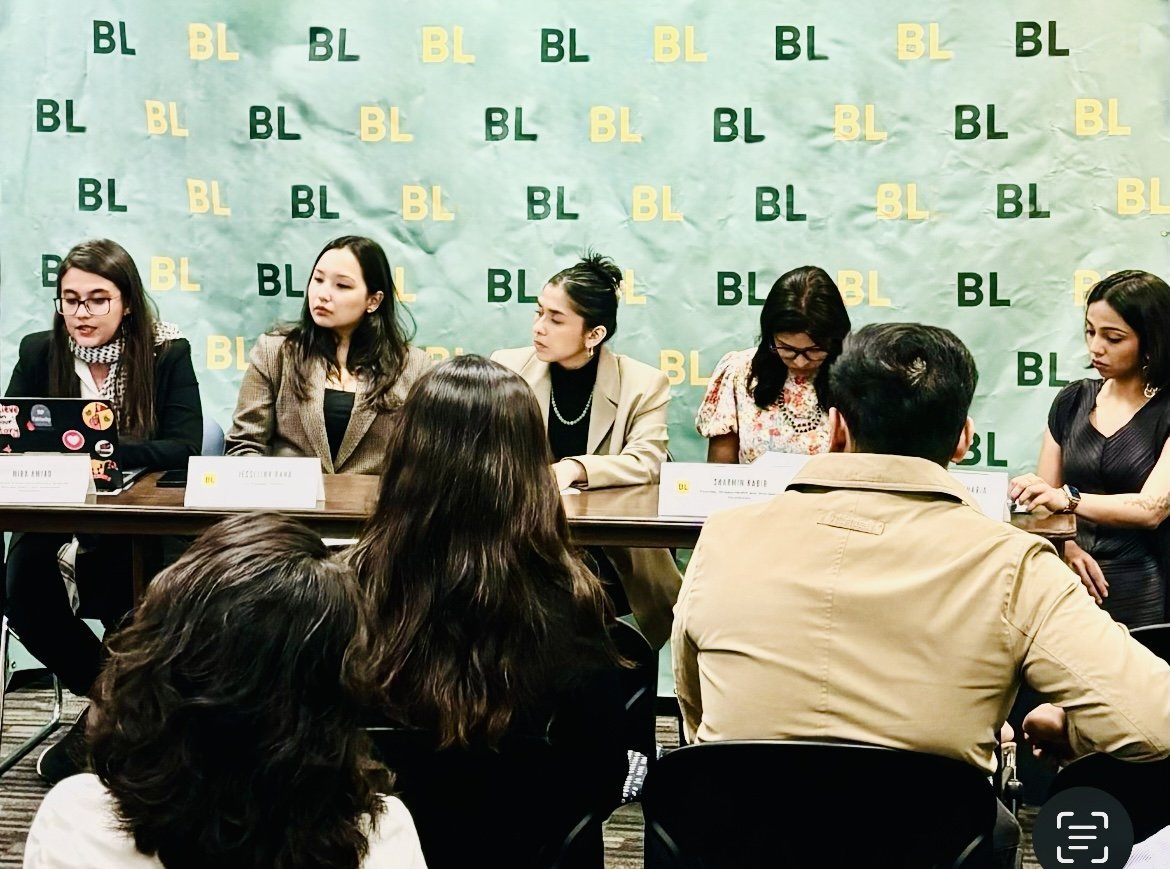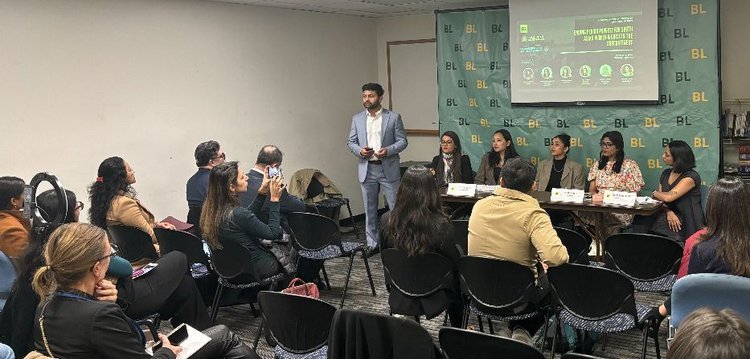Community
Panel: CSW68 Ending Period Poverty for South Asian Women & Girls
Impact
-
70 Attendees
-
Sep 20, 2023
-
SDG 5
-
New York City
Impact
Overview
During Session 68 of the UN Commission on the Status of Women, experts discussed menstrual hygiene management challenges and solutions in Bangladesh, India, Nepal, Pakistan, and Sri Lanka.
Our partners
Project Team
Madhuri Kibria, Program Manager, BacharLorai
Sharmin Kabir, Founder, Wreetu Health and Wellbeing Foundation.
Ananya Chhaochharia, Founder, Paint It Red Foundation.
Hira Amjad, Founder, DASTAK Women Rights and Awareness Foundation.
Jesselina Rana, Co-Founder, Pad2Go.
Hafsah Muheed, Founder, Amplifying Impact
SDG Alignment
Target 5.6
Ensure universal access to sexual and reproductive health and reproductive rights as agreed in accordance with the Programme of Action of the ICPD and the Beijing Platform for Action
Context
In recent years, menstrual health has gained recognition as a key aspect of women's rights and well-being, closely linked to various UNSDGs. Despite this awareness, menstrual health remains a neglected issue in South Asian countries such as Bangladesh, India, Pakistan, Nepal, and Sri Lanka, where deep-rooted social stigmas, limited education, and systemic gender inequalities exacerbate challenges for women and girls.
On the sidelines of the 68th Session of the UN Commission on the Status of Women (CSW), a panel discussion titled "Ending Period Poverty for South Asian Women & Girls" was hosted to address these issues. The event brought together experts from South Asia to share their experiences and best practices in addressing menstrual hygiene management (MHM). The discussion emphasized the urgent need for improved policies and grassroots advocacy tailored to the socio-economic contexts of the region, highlighting the role of menstrual health in advancing gender equality and improving women's participation in education and the workforce. The panel drew on recommendations from BacharLorai's 2023 Policy Brief, stressing the importance of collaboration among governments, NGOs, CSOs, and human rights groups to end period poverty.
Addressing Cultural and Access Barriers in Menstrual Health Management (MHM) was a key theme, as the panel underscored the critical challenges women and girls face due to cultural stigmas and socioeconomic barriers. These obstacles were highlighted for their detrimental effects on education and social participation, with a call for strategic interventions to break the cycle of misinformation and taboos around menstruation. The session also emphasized the importance of Inclusive Language and Representation in Menstrual Health, advocating for a broader, more inclusive approach that considers the needs of non-binary, transgender, and other marginalized groups often overlooked in discussions about MHM.
Empowering Grassroots Initiatives for Direct Community Impact was another focus, as panellists stressed the importance of local organizations in delivering tailored MHM interventions that directly address community needs. The panel urged for greater support and funding for these grassroots efforts, recognizing their essential role in sustainable solutions. The panel further explored Collaborative Efforts to Strengthen MHM Networks, advocating for stronger partnerships among practitioners, policymakers, and civil society organizations. These collaborations were seen as critical for sharing best practices, driving policy change, and ensuring effective resource allocation. A major point of agreement was the need to Prioritize Accessibility and Inclusivity in MHM Solutions, with panellists calling for efforts to make menstrual products and education accessible to all, including the most marginalized populations. They also pushed for more Funding and Policy Advocacy for Menstrual Health, emphasizing the importance of directing resources to grassroots and women-led organizations and implementing tax reforms on menstrual products. Finally, the session highlighted the significance of Empowering Local Communities Through Leadership and Ownership, stressing the importance of building trust and local ownership to ensure the long-term success of MHM programs at the grassroots level.
This comprehensive discussion highlights the multifaceted challenges and potential solutions in addressing menstrual health and ending period poverty across South Asia.








